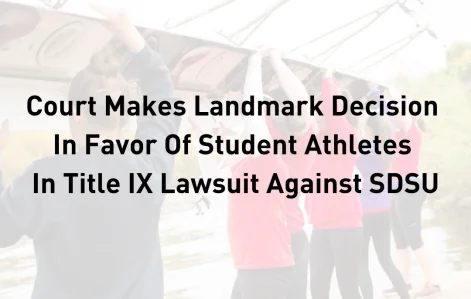President Biden signed a law on September 22, 2022, that removed the federal statute of limitations on civil lawsuits alleging child sex trafficking, child pornography and other federal crimes harming children, the “Child Sex Abuse Victim Act.” Previously, most survivors had only until age 28 to sue in federal court, even though many people do not disclose their abuse until they are much older, on average, when they are 52 years old, according to researchers.1
How To Determine If My Case Qualifies As A Federal Sex Offense?
The answer to this question is more complicated than it may appear. Facts such as the exact nature of the offense, or whether there was interstate activity involved in committing the offense, may determine whether it falls under federal or state jurisdiction. It is important to discuss your case with an attorney so they can make the determination.
When Did The Sex Offense Occur?
The date of the offense also matters when determining the statute of limitations. The Child Sex Abuse Victim Act is not retroactive, and it is not a reprieve from the existing statute of limitations at the time of federal sex offense. That means it does not change the statute of limitations for federal crimes that were committed before the bill was signed on September 22, 2022. The existing statute of limitations at the time the crime was committed still applies.
State Statute of Limitations Still Apply
In addition to federal statutes of limitations, each state has its own statute of limitations. Some states have passed reprieves on statute of limitations which grant victims of child sex abuse a period of time to file claims for abuse where the statute of limitations had previously expired. In California, Assembly Bill AB 218 became effective in 2019, allowing victims of child sexual abuse to file civil lawsuits for abuse that happened up to 50 years prior. The reprieve, also known as a “look back window” closes December 31, 2022.
The California Sexual Abuse And Cover Up Accountability Act
In California, the Sexual Abuse and Cover Up Accountability Act of 2022, AB 2777, becomes effective January 1, 2023. This bill offers a reprieve from the statute of limitations until December 31, 2026, for survivors seeking to recover damages suffered as a result of a sexual assault that occurred on or after January 1, 2009, that would otherwise be barred solely because the statute of limitations has or had expired. The bill would additionally revive claims seeking to recover damages suffered as a result of a sexual assault that occurred on or after the plaintiff’s 18th birthday when one or more entities are legally responsible for damages and the entity or their agents engaged in a cover up, as defined, and any related claims, that would otherwise be barred prior to January 1, 2023, solely because the applicable statute of limitations has or had expired, and would authorize a cause of action to proceed if already pending in court on the effective date of the bill or, if not filed by the effective date of the bill, to be commenced between January 1, 2023, and December 31, 2023.2
At Haeggquist & Eck, we understand that there is no statute of limitations for the trauma experienced by sexual assault survivors. Eliminating the statute of limitations for federal offenses is a step in the right direction. Unfortunately, the right to pursue civil justice by filing a claim for offenses that are handled at the state level still have complex statutes of limitations that should be discussed with an attorney. Time is of the essence, so it is best to seek a consultation sooner than later. Seeking a free and confidential consultation does not obligate you to take further action.
Resources:





